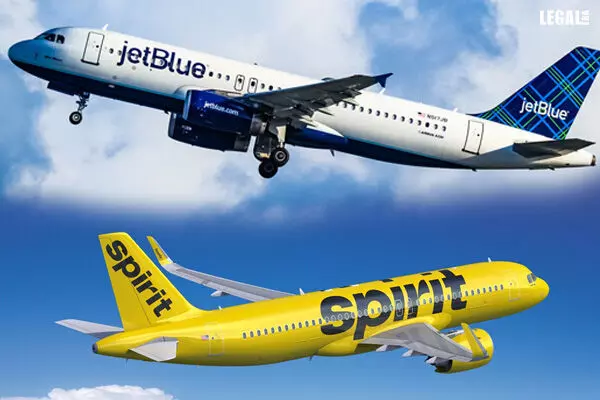- Home
- News
- Articles+
- Aerospace
- Artificial Intelligence
- Agriculture
- Alternate Dispute Resolution
- Arbitration & Mediation
- Banking and Finance
- Bankruptcy
- Book Review
- Bribery & Corruption
- Commercial Litigation
- Competition Law
- Conference Reports
- Consumer Products
- Contract
- Corporate Governance
- Corporate Law
- Covid-19
- Cryptocurrency
- Cybersecurity
- Data Protection
- Defence
- Digital Economy
- E-commerce
- Employment Law
- Energy and Natural Resources
- Entertainment and Sports Law
- Environmental Law
- Environmental, Social, and Governance
- Foreign Direct Investment
- Food and Beverage
- Gaming
- Health Care
- IBC Diaries
- In Focus
- Inclusion & Diversity
- Insurance Law
- Intellectual Property
- International Law
- IP & Tech Era
- Know the Law
- Labour Laws
- Law & Policy and Regulation
- Litigation
- Litigation Funding
- Manufacturing
- Mergers & Acquisitions
- NFTs
- Privacy
- Private Equity
- Project Finance
- Real Estate
- Risk and Compliance
- Student Corner
- Take On Board
- Tax
- Technology Media and Telecom
- Tributes
- Viewpoint
- Zoom In
- Law Firms
- In-House
- Rankings
- E-Magazine
- Legal Era TV
- Events
- Middle East
- Africa
- News
- Articles
- Aerospace
- Artificial Intelligence
- Agriculture
- Alternate Dispute Resolution
- Arbitration & Mediation
- Banking and Finance
- Bankruptcy
- Book Review
- Bribery & Corruption
- Commercial Litigation
- Competition Law
- Conference Reports
- Consumer Products
- Contract
- Corporate Governance
- Corporate Law
- Covid-19
- Cryptocurrency
- Cybersecurity
- Data Protection
- Defence
- Digital Economy
- E-commerce
- Employment Law
- Energy and Natural Resources
- Entertainment and Sports Law
- Environmental Law
- Environmental, Social, and Governance
- Foreign Direct Investment
- Food and Beverage
- Gaming
- Health Care
- IBC Diaries
- In Focus
- Inclusion & Diversity
- Insurance Law
- Intellectual Property
- International Law
- IP & Tech Era
- Know the Law
- Labour Laws
- Law & Policy and Regulation
- Litigation
- Litigation Funding
- Manufacturing
- Mergers & Acquisitions
- NFTs
- Privacy
- Private Equity
- Project Finance
- Real Estate
- Risk and Compliance
- Student Corner
- Take On Board
- Tax
- Technology Media and Telecom
- Tributes
- Viewpoint
- Zoom In
- Law Firms
- In-House
- Rankings
- E-Magazine
- Legal Era TV
- Events
- Middle East
- Africa
JetBlue And Spirit Airlines Plead Against Lawyers Being Rewarded For Blocking Merger

JetBlue And Spirit Airlines Plead Against Lawyers Being Rewarded For Blocking Merger
The carriers abandoned their plans after a suit went in favor of the Department of Justice
JetBlue Airways and Spirit Airlines have requested a judge not to reward a group of law firms that sued to block the airlines' proposed $3.8 billion merger.
The entities justified that the lawyers "piggy-backed" on a separate lawsuit filed by the US Department of Justice (DoJ), challenging the deal.
Early this year, after a judge ruled in favor of the DoJ stating that the association of the two carriers would harm the customers, the airlines abandoned their merger plans.
However, according to the law firms, who bid for the fees, it did not mean that private antitrust plaintiffs would not get credit, especially since they sued before the government’s case.
Recently, Joseph Alioto of the Alioto Law Firm in San Francisco, who also filed lawsuits opposing other airline mergers, pleaded with the US District Judge William Young in Boston to award up to $34.1 million to the plaintiffs, including lawyers from eight other law firms.
It amounted to $3,000 and $5,000 an hour for the lawyers' work on the case, which the judge dismissed.
The airlines, represented by attorneys from Cooley LLP and Paul, Weiss, Rifkind, Wharton & Garrison, argued that Alioto's case lacked merit, even before it was put on hold last year amid the government's challenge. Of the 25 original plaintiffs, 22 were dismissed for lack of standing, and one expired.
The airlines added, “Even if the plaintiffs could claim credit for the government's success, the award sought for 6,776 hours of work was unreasonable.”
However, Alioto differed. "If we didn't exist, they would have continued the appeal," he remarked. Initially, the airlines appealed before the DoJ’s victory, and the threat of his case persuaded JetBlue and Spirit to walk away.
The DoJ has not weighed in on the plaintiffs' fee request.
The private plaintiffs first sued in November 2022, four months before the DoJ. In their request for fees, they submitted that the government had either not sued or been unsuccessful in past airline merger cases. That’s why there was no indication that antitrust enforcers would target the JetBlue-Spirit deal.
Alioto added that the government included a fee award provision in the Clayton Act to encourage antitrust litigation from private plaintiffs.
He accused the airlines of trying to eliminate private enforcement of the antitrust statute by opposing their fee requests. "They're trying to destroy the purpose and efficacy of the statute.”



